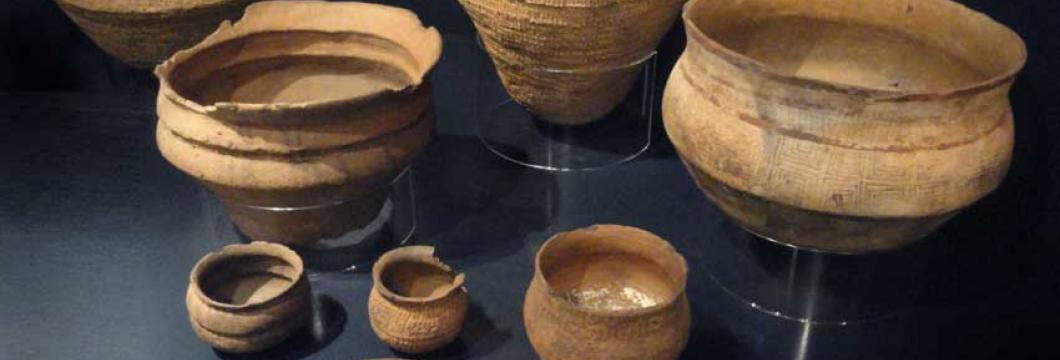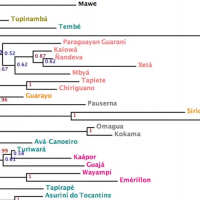In Spring 2014, Social Science Matrix sponsored a working group of researchers from the fields of descriptive and historical linguistics, computational phylogenetics, and lowland South American archaeology and ethnography. Their goal: to develop insights into the linguistic and social history of the indigenous Tupí-Guaraní-speaking peoples, who live across much of lowland South America. English words like “jaguar” and “tapioca” are of Tupí-Guaraní origin.
Led by Lev Michael, Associate Professor in the UC Berkeley Department of Linguistics, this working group is applying cross-disciplinary approaches to better understand the history of the Tupí-Guaraní people. Drawing on methods and analytical techniques from linguistics, computational biology, and anthropology, this group reconstructed aspects of Proto-Tupí-Guaraní, the ancestor of the modern Tupí-Guaraní languages.
They then developed an internal classification of the family and a model of its diversification, and in conjunction with archaeological findings and ethnographic materials on Tupí-Guaraní peoples, are attempting to infer features of Proto-Tupí-Guaraní culture and society. Through this process, they are developing an account of the geographical dispersion of the Tupí-Guaraní peoples across lowland South America.





